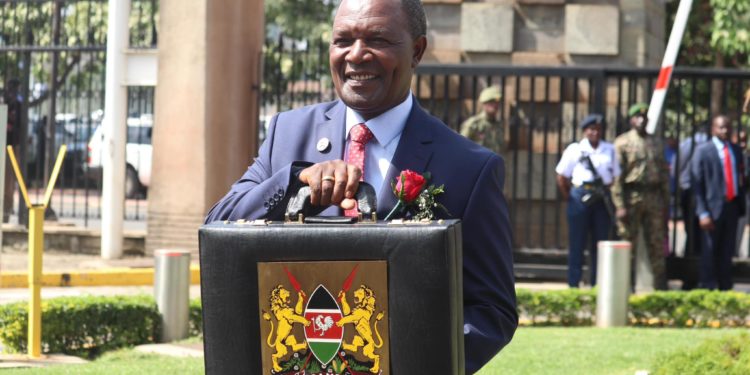The Cabinet, chaired by President William Ruto, has approved the 2025 Budget Policy Statement (BPS), outlining government expenditure for the upcoming fiscal year. The budget, which now heads to Parliament for review, is set at KES 4.2 trillion, a reduction from the National Treasury’s earlier projection of KES 4.5 trillion.
A statement from the Cabinet indicated that total expenditure will represent 22.1% of GDP, with allocations including KES 3.09 trillion for recurrent spending, KES 725.1 billion for development, KES 436.7 billion for county transfers, and KES 5 billion for the Contingency Fund.
“The county allocation represents 25.8% of the most recent audited revenue (KES 1.57 trillion from the 2020/21 financial year), aligning with constitutional requirements,” the dispatch stated. The Division of Revenue Bill 2025 proposes KES 405.1 billion in equitable share revenue for county governments and KES 10.6 billion for the Equalisation Fund, while an additional KES 69.8 billion in grants from the national government and development partners will bring total county transfers to KES 474.87 billion.
The government’s fiscal approach emphasizes sustaining economic growth, fiscal stability, and inclusive development. Under the Bottom-Up Economic Transformation Agenda, GDP expanded to 5.6% in 2023, up from 4.9% in 2022, driven by a rebound in agriculture after years of drought. Growth is projected to stabilize at 5.3% in 2025 and 2026, supported by increased agricultural productivity and a resilient services sector.
To maintain momentum, the government has identified six priority areas:
“These will be achieved through strategic investments in key economic sectors, strengthening production and market access, and attracting local and foreign investments,” the Cabinet noted.
The 2025/26 fiscal policy aims to reduce debt risks while funding essential public services through expenditure rationalization, revenue mobilization, and enhanced tax compliance. Key tax measures include expanding the tax base, leveraging technology for efficiency, sealing revenue loopholes, and maximizing non-tax revenues from ministries, departments, and agencies.
Public finance management reforms will focus on zero-based budgeting, transitioning to accrual-based accounting, and adopting the Treasury Single Account for cash flow efficiency. The government also plans to expand Public-Private Partnerships (PPPs) to enhance private sector involvement in infrastructure and public service delivery.
The Cabinet also approved Supplementary Estimates No. II for 2024/25, authorizing an additional KES 199.9 billion to support ongoing projects, personnel costs, and budget realignments.
The approval comes against a backdrop of economic uncertainty, following widespread anti-government protests in mid-2024 that forced the withdrawal of the Finance Bill 2024. The bill had aimed to raise KES 344.3 billion in additional revenue but faced public opposition.
















